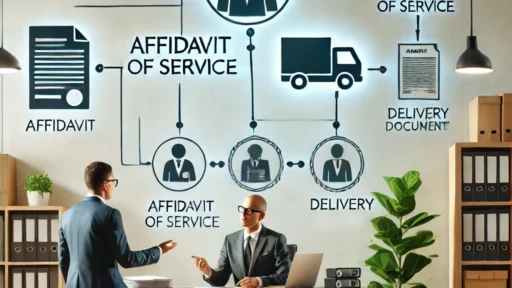The informational variable that necessitates the use of the Employer Identification Number (EIN) is most certainly the diverse functions it serves and more importantly, it can be easily used for federal tax purposes. The same EIN number often becomes the point of access of a business owner to a business bank account and a license. Acquiring this first-hand knowledge will significantly streamline the process and will be in compliance with all the federal regulations, in addition to saving a lot of time.
Would you be good enough to additionally provide me with some simple instructions on how to identify my EIN? I’m a little confused and overwhelmed and could really use your expert guidance. I understand steps and resources are necessary, so the guide will identify those methods to find the EIN effectively so you can carry out your business operations successfully.
What Are EIN Numbers?
Moreover, EINs being the backbone of the business world have to be masterfully understood not only what they are but what their significance is to every business owner.
What Is an EIN Number?
The Employer Identification Number (EIN) is the UNIQUE nine-digit number that is given by the Internal Revenue Service (IRS) to identify the business entity. Having a format similar to this, XX-XXXXXXX. Your EIN is like your Tax ID number since it is mainly used for tax purposes by businesses similar to the Social Security number used by individuals.
The Necessity of the EIN Numbers
The use of EIN numbers is important for the business sector in various regards which include:
To receive an EIN from the IRS, one can submit Form SS-4, which the IRS uses for EIN application. Businesses can also get help by calling the IRS Business & Specialty Tax Line at 1-800-829-4933. If a company forgot the EIN, the details can be found in old tax documents or any correspondence from the IRS containing this number.
Who Requires an EIN?
Several organizations have a need for the Employer Identification Number (EIN) for their legal and tax obligations. Compliance and operational efficiency depend on the understanding of which organizations necessitate the EIN.
Businesses
The businesses, including sole ownership, partnerships, corporations, and limited liability companies (LLCs), are in a position where they need obviously an EIN for multiple reasons. Businesses hiring workers, submitting taxes, opening bank accounts, and applying for licenses are some of the activities that require an EIN. Additionally, businesses that operate as partnerships or corporations must obtain an EIN even if they have no employees. Creating a business entity is the root cause of the requirance of an EIN, as this multitude of numbers identifies an organization for tax purposes.
Nonprofit Organizations
Nonprofit organizations, despite not having employees, require an EIN. The purpose of the EIN in this case is to facilitate nonprofit organizations to maintain their federal tax-exempt status and to conform to the various rules and regulations of the different states. Many states mandate that a
This number is referred to as an Employer Identification Number and is commonly used for a variety of purposes including for nonprofit registration, bank accounts opening, and grant applications. EIN is a fundamental requirement that is presented to the organization during all contacts with the Internal Revenue Service, and other governmental bodies.
Common Mistakes to Avoid
Once the individual is aware of the surprises during the process of an Employer Identification Number (EIN) search, they only have to concentrate on avoiding them, as the process becomes much easier and faster.
Misunderstanding the Application Process
It is often seen that the lack of understanding of the application process is the major reason for both the unnecessary waste of time and the negative emotional state of the person involved. The key is to ensure that the entity types and structure of the company are filled out correctly in Form SS-4 thereby accuracy and completeness of all information. A wrong input of the entity type or legal structure can make the application invalid. The process time also gets extended if the form is sent through the wrong channel i.e. using mail instead of online. Choosing the best time for application also plays a crucial role, sending the form during high tax season may result in a late response. It is always good to check if the organization is eligible before applying in order to avoid any unnecessary complications.
Confusing EIN with Other Numbers
When given the wrong information, the organization could waste time trying to correct the situation. For instance, the employer’s tax ID issued by the IRS, the SSN, and the TIN are three different numbers, and should not be confused. Businesses should make sure they use the correct number for the right purpose. The TIN is used for individual taxpayers while the EIN is for business entities. Misinterpreting a TIN for an EIN may lead to inconsistent filings and potential penalties. If the users understand the significance and arrangement of each of the income numbers, they can always conform with the laws and continue smoothly during their business operations.
Discover the Power of BlueNotary:
Connect your Business, Title Company, or Law Firm to Satisfy your Customers and Decrease Turnaround
Hava your documents Notarized/Sign-up
Join the Free Notary Training Facebook Group
Conclusion
Whether you hire a person for the task or you prefer the do-it-yourself method, the need for retrieving an EIN code no longer exists. Business owners can switch to the IRS site and get the same number as long as they follow the right steps. The provision of the EIN by the IRS is an alternative means of obtaining the EIN other than directly from previous tax documents that is not a complicated process as it used to be.
Recognizing that an EIN is a requirement for legal compliance and running a business hassle-free is very important. In the way that is discussed, business people are given the assurance that they are in possession of a valid identification number for their business activities. Ensuring that proper records are kept and that the common mistakes are avoided will be significant for both the streamlining of the process and the enhancing of accuracy.
Frequently Asked Questions
What is an Employer Identification Number (EIN)?
The Employer Identification Number (EIN) is a number that is nine figures in length and is unique to each business entity. The IRS is solely responsible for issuing it. In the same way it is used by authorities to keep track of individual’s incomes, the EIN is pertinent for tax reporting, bank accounts, employee recruitment, and application of permits and licenses by the company.
Why does a business need an EIN?
Your business needs an EIN for several reasons that include tax compliance, opening bank accounts, hiring employees, and applying for permits or licenses. For partnerships, corporations, and nonprofits, an EIN is a legal requirement, regardless of whether or not they have employees.
How can EINs be found?
You can find out your EIN number using the IRS EIN lookup tool online, searching state websites, and accessing databases such as Dun & Bradstreet. Also, a copy of your EIN can be obtained from previous tax documents or IRS correspondence if you have misplaced it.
What are the forms required for the EIN application?
Normally, to apply for an EIN you would need to fill out Form SS-4. You can submit this form online via the IRS website,, by mail, or by fax. You can also apply by calling the IRS Business & Specialty Tax Line.
Which are the common mistakes to avoid while trying to find an EIN?
It is true that people usually mix up EINs with other identification numbers such as Social Security Numbers or Taxpayer Identification Numbers when finding an EIN number. The right choice of channels and the accuracy of the Form SS-4 are the clause should be observed so as to steer clear of sip-ups and comply with the regulations.
Who should get an EIN for their business?
All business entities like sole proprietorships, partnerships, corporations, and LLCs need an EIN for tax reporting and compliance. Nonprofits must also obtain an EIN to ensure tax-exempt status and meet federal and state requirements.








